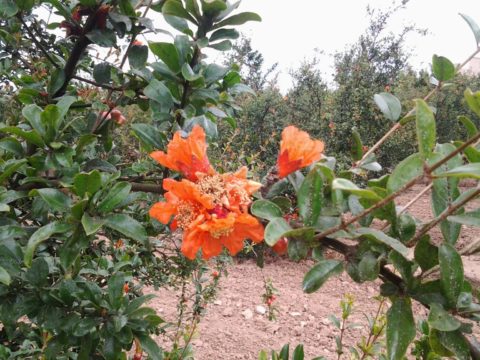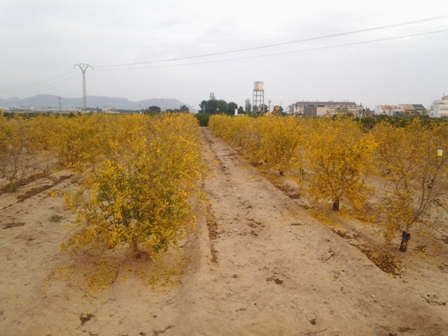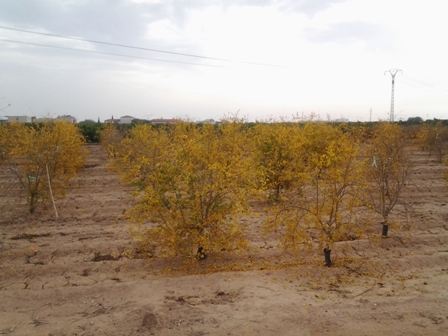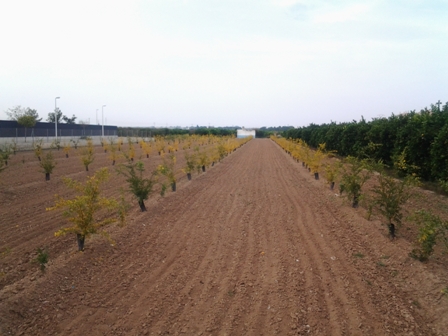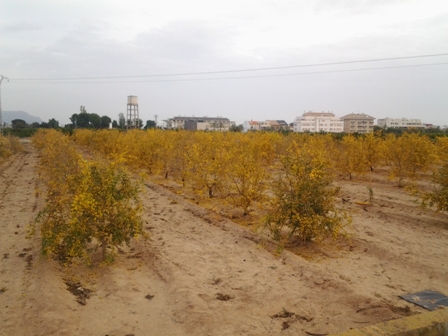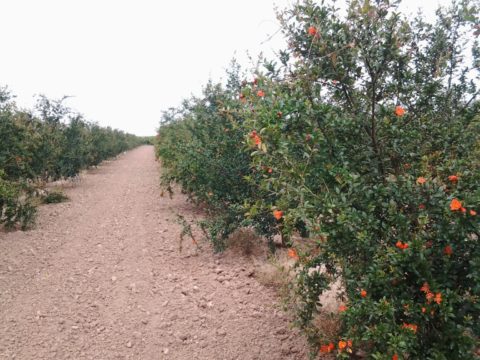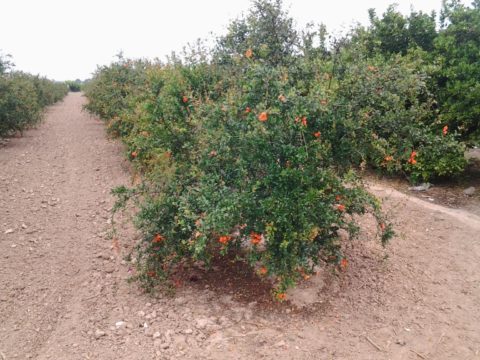In 711 AD North African Arabs occupied Valencia and most of the Iberian Peninsular, and brought with them many things that would become an essential part of the Valencian identity, such as rice, gunpowder and citrus fruits.
At first the citrus fruits were purely ornamental, and it wasn’t until the steamship made exportation viable that Valencian farmers began to produce sweet, edible oranges on a large scale.
Today oranges are making less and less economic sense, and many farmers on the Valencian coastal plain are switching to other fruits, such as persimmons and pomegranates.
One unexpected advantage of the pomegranate tree is that, being deciduous, it is giving the Valencian landscape a welcome little touch of autumn.
The name pomegranate comes from Latin; pōmum means ‘apple’ and grānātum means ‘seeded’. When some clever soul invented a weapon that could be thrown before exploding, soldiers were reminded of the fruit and it became known as a ‘grenade’.
The seeds of the grenade however are far more harmful than those of the pomegranate, which serves to remind us that it was Henry Shrapnel, a British officer and gentleman who invented the fragmentation bomb, for which we are all truly grateful.
Around May the pomegranates are fully green again and producing their spectacular red flowers, bringing some additional welcome colour to the countryside.

